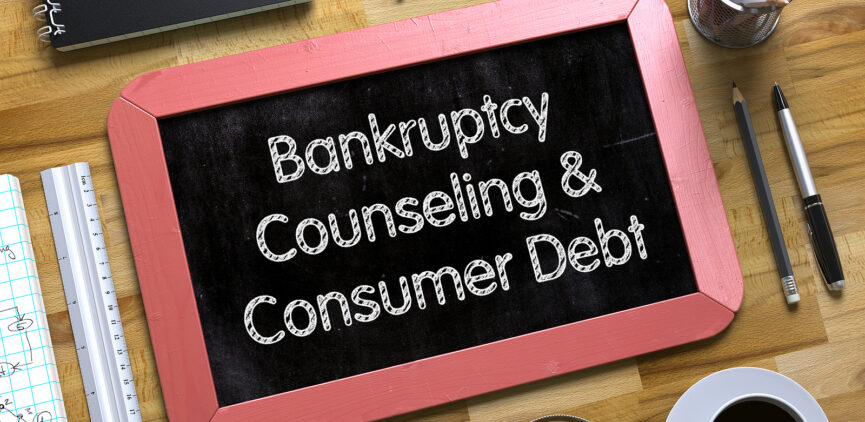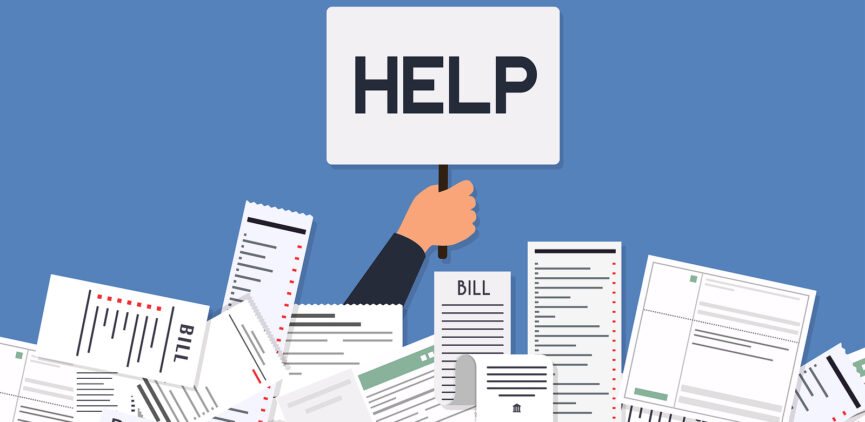If you’re trying to manage bills that are piling up, you may have come across the idea to consolidate them. Consolidating your debts can be convenient, allowing you to make one monthly payment. It can also allow you to swap high-interest debt for low-interest debt. However, it has drawbacks and is not right for everyone. Here are some bill consolidation strategies to keep in mind as you make a plan for paying off your debt.
Refresher – What is Bill Consolidation?
Bill consolidation can be a slightly misleading term, because it sounds broader than it really is. Essentially, bill consolidation is the process of combining multiple bills or debts into a single financial commitment that you owe and make payments toward. The reason the term “bill consolidation” can be confusing is that many bills cannot be consolidated, and that many debts which can be consolidated are not normally thought of as “bills.” Another term, “debt consolidation” is commonly used to refer to the same concept as “bill consolidation” and may be more accurate in many cases.
To simplify our discussion in this post, we are going to focus only on consolidating unsecured debts. Credit cards and medical bills are two common unsecured debts that can be consolidated.
Another Refresher – Know Your Credit Score
Whether true debt consolidation is a viable and smart strategy will depend on the terms you receive. Those terms will depend on your credit score. Therefore, you need to take inventory of where you stand in order to assess which realistic options will be available to you. If you have a great credit score, then a balance transfer may be a good option. If your score is on the low end, then the terms on a balance transfer or loan will not be as appealing and could create more harm than good.
There are many ways to check your credit score. Ideally, you would check your FICO score, but even an alternative score could provide a sense of where you stand and how a lender would evaluate you.
Strategy #1 – Balance Transfer
A balance transfer involves opening a new credit card with a low or zero-percent interest rate (for a promotional period). You then move your previous debt(s) to this new credit card. In effect, you will have reduced your interest rate from a high rate on the old debt to a lower rate on the new card.
You will typically pay a fee for the amount you transfer (although some cards waive the fee for applicants with excellent credit), and there will be a limit to how much you can transfer (meaning you may not be able to transfer all of your existing debt).
This is a smart strategy IF:
You have good enough credit to receive a zero-percent promotional rate. Note: it is an even better strategy if you have excellent credit and can avoid a transfer fee.
You will pay off all the debt transferred before the promotional interest rate expires.
Strategy #2 – A Debt Consolidation Loan
A consolidation loan works much like a balance transfer, but you would be receiving a loan rather than a line of credit. The process would involve opening the loan, using funds from the loan to pay off the previous debt(s), and then repaying the loan. Like with balance transfers, better terms will be reserved for borrowers with good to excellent credit.
To make this strategy worth it, a borrower should only accept a loan with an interest rate significantly lower than the rate on the existing debt(s). Some lenders may charge origination fees, but borrowers should shop around and try to avoid such fees.
This is a smart strategy IF:
The loan provides better terms than any balance transfer available to the applicant OR the applicant is concerned about being able to pay a balance transfer debt during the promotional interest period.
The interest rate on the loan is significantly lower than on the previous debt(s), meaning the borrower has good to excellent credit.
The borrower can avoid origination fees.
Strategy #3 – Debt Management Program
The two strategies discussed so far are primarily reserved for people with good to excellent credit. But what about if you have high interest debt and a credit score that is not good or excellent? In that case, there are some options. A few involve significant risks, and we do not generally recommend them (things like HELOCs and borrowing from your retirement accounts). However, a debt management plan may be a good fit.
In a debt management plan, you work with a credit counseling agency to pay off your debts. The counselors have relationships with creditors, and in many cases your creditors will reduce interest rates and waive fees while you are on the plan. The plan is structured so that the payments are manageable, and the plan continues until you pay your debts is full.
You make one monthly payment under the plan, and the counselors distribute that payment to your creditors. So technically, a debt management plan is not a form of consolidation. That is because under the plan your accounts remain separate and are not consolidated into a new financial commitment. However, it provides the benefits of consolidation, because you only have to make one monthly payment and you often receive reduced interest rates.
Additionally, the counselors provide financial education and are there as a resource for you throughout your repayment process.
This is a smart strategy IF:
Your credit does not qualify you for good rates on a balance transfer or consolidation loan; AND/OR you would like to have a counselor resource and financial education during your repayment; AND/OR you have experienced a financial setback such that even if you received good terms on a consolidation product, it would be difficult to make payments.
You have primarily high-interest unsecured credit card debt.
As you can see, a lot goes into the decision to pursue debt consolidation. A balance transfer or consolidation loan may be the right solution for those with great credit scores who can secure good interest rates and avoid fees. For everyone else, the terms and fees may be so high that you don’t save any money compared to the high interest debt you already had. In those cases, a debt management plan may make much more sense. The plan is structured for your specific situation, often provides lower interest rates, and allows for one monthly payment. To learn more about where you stand and which path forward may make sense for you, speak with a credit counselor.
The post Smart Strategies for Bill Consolidation or Debt Consolidation appeared first on NFCC.
Read more: nfcc.org








